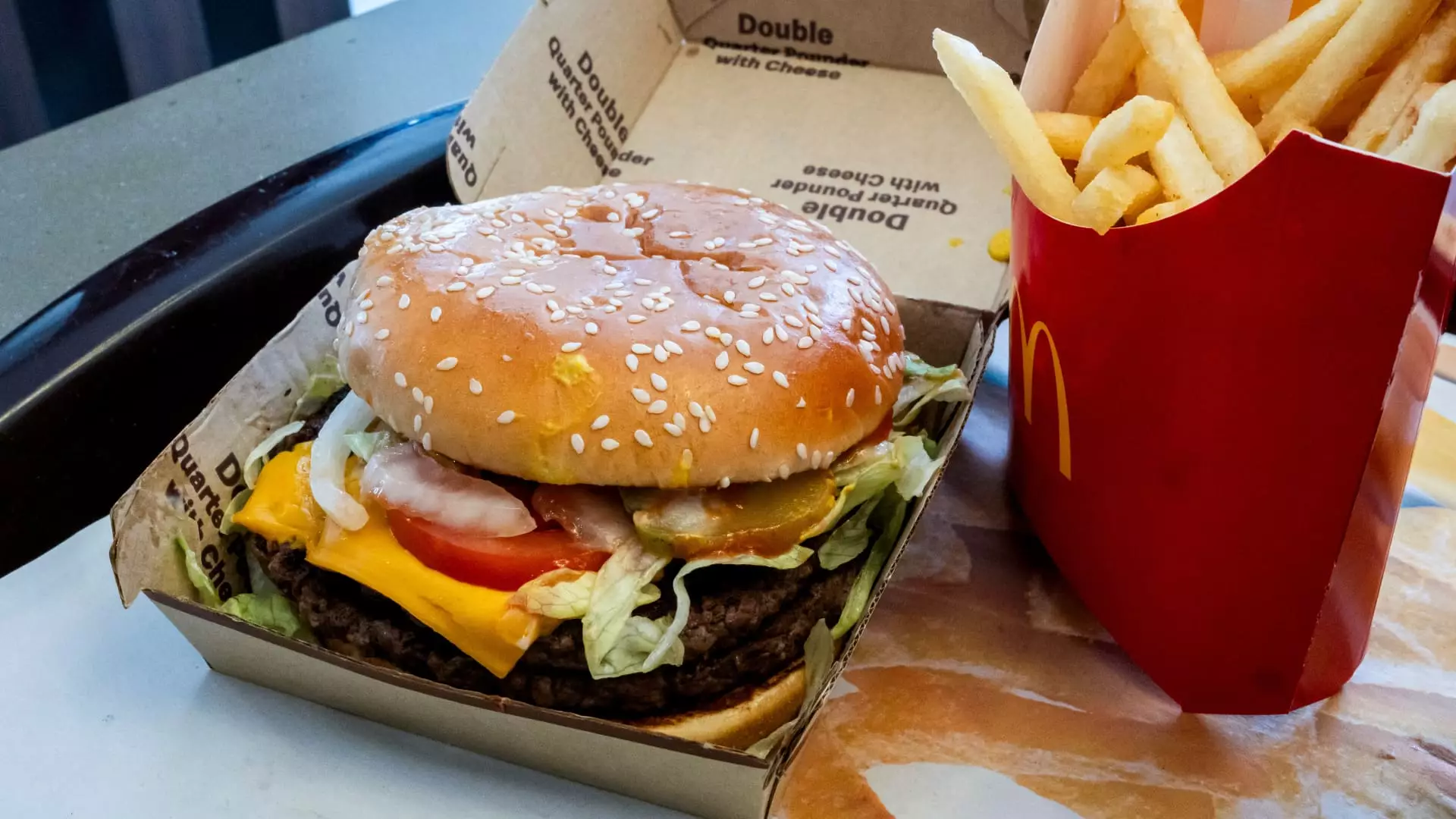In a bid to regain consumer confidence, McDonald’s has announced the reintroduction of its iconic Quarter Pounder burger across approximately 900 locations this week. This move comes on the heels of a temporary withdrawal of the product due to a serious E. coli outbreak that has raised significant public health concerns. The outbreak, attributed to tainted ingredients, has consequently impacted one-fifth of the fast-food giant’s U.S. outlets, particularly in states including Colorado, Kansas, and Wyoming, among others.
As part of this cautious return, the Quarter Pounder will notably be served without slivered onions—an ingredient identified as the likely culprit behind the outbreak. This decision reflects a strategic adjustment by McDonald’s to prioritize customer safety while attempting to mitigate potential reputational damage amid an ongoing investigation by health authorities.
The situation highlights the complexities involved in the fast-food supply chain and the pressing need for rigorous food safety protocols. As reports have emerged detailing the outbreak, the Food and Drug Administration (FDA) has focused its investigations on slivered onions supplied by Taylor Farms. Following these findings, McDonald’s has made the decisive move to sever ties with Taylor Farms indefinitely, signaling their commitment to operational transparency and consumer health safety.
Cesar Pina, McDonald’s chief supply chain officer for North America, reassured the public that contaminated items have been effectively removed from the company’s supply chain. The Colorado Department of Agriculture confirmed that no E. coli was detected in the beef patties sourced from affected restaurants. However, the tension remains palpable as questions about food safety practices linger. Health regulatory bodies are already scrutinizing the company’s operational standards, which could lead to broader implications for fast-food businesses nationally.
The ramifications of the E. coli outbreak extend beyond the supply chain and sales metrics; they touch the lives of individuals and families affected by foodborne illnesses. The Centers for Disease Control and Prevention (CDC) reported 75 cases of infection across 13 states, with numerous hospitalizations, including instances of severe health complications such as hemolytic uremic syndrome, which can lead to kidney failure. Alarmingly, the outbreak has also led to a death in Colorado, amplifying the urgency surrounding the investigation.
The human cost underscores the significant responsibilities that food corporations hold in ensuring the health and safety of their products. The incident serves as a grim reminder of the potential consequences tied to lapses in food safety regulations, which can cumulatively erode consumer trust.
In the wake of these events, McDonald’s has entered a phase where corporate responsibility and proactive public communication are paramount. U.S. President Joe Erlinger’s publicly broadcasted apology to customers encapsulated the need for businesses to address consumer fears directly and transparently. The nature of the apology reflects a recognition of the emotional state of customers who may feel apprehensive about future dining experiences.
As the company approaches its third-quarter earnings report, with shares already experiencing a decline due to the outbreak, it remains imperative for McDonald’s to navigate these challenges carefully. With around a million Quarter Pounders sold weekly in the affected regions prior to the outbreak, the financial implications are substantial, but they cannot overshadow the importance of consumer health and safety.
Moving forward, McDonald’s faces the daunting task of rebuilding trust. The company’s response to this crisis will likely dictate consumers’ perceptions and future loyalty. As health inspections and product sourcing become increasingly scrutinized, there’s an inherent need for a paradigm shift in how fast-food chains approach product safety—a shift that emphasizes transparency, rigorous monitoring, and an uncompromising commitment to public health.
Ultimately, this experience in crisis management will serve as a crucial learning opportunity not only for McDonald’s but also for the broader food industry. Navigating the complexities of consumer trust, corporate responsibility, and product safety will be paramount in determining the future landscape of fast-food enterprises in America.


Leave a Reply